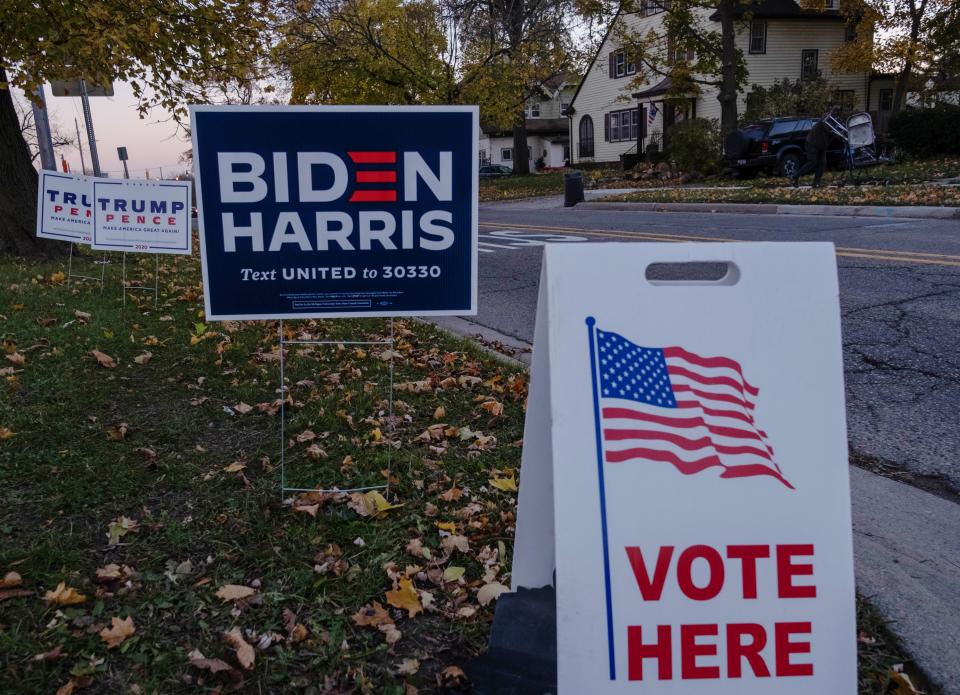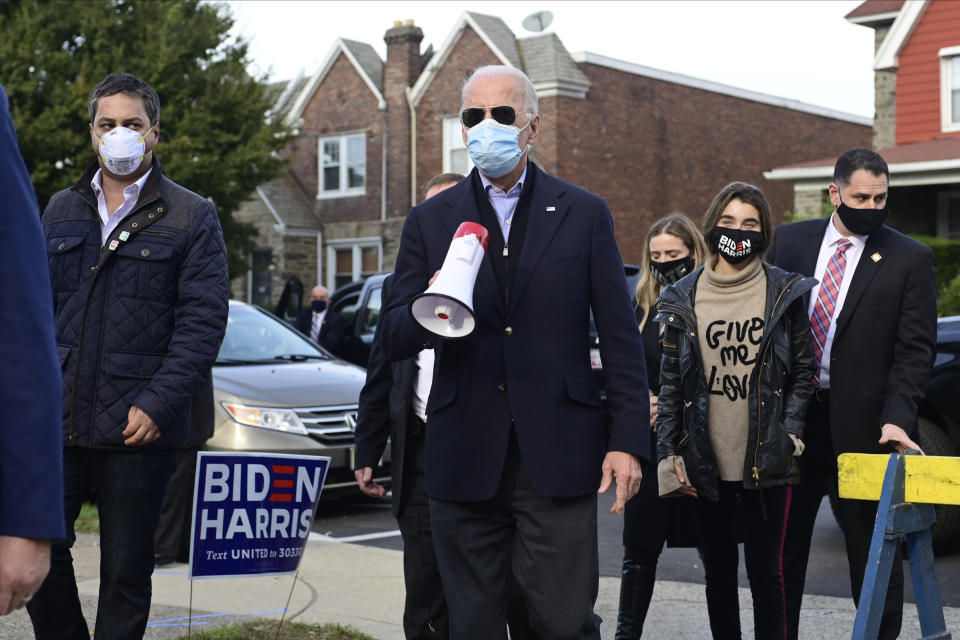Elections 2020: How voters flipped in how they think about the economy between 2016 and now
As the results came in on Tuesday night, it was evident it would take some time before the choice for President became clear.
Yet voter surveys immediately revealed a significant difference in how the 2020 electorate discussed the economy, compared with the last time Donald Trump stood for office.
The coronavirus pandemic, four years of Trump’s policies, and partisan politics have all combine to shake up and — in some cases flip — voter priorities when it comes to the economy.
AP Votecast, a national survey of the electorate, found that the pandemic had supplanted the economy as the top issue. According to preliminary results, about 4 in 10 respondents said the coronavirus pandemic was the top issue facing the nation.
Meanwhile, roughly 3 in 10 voters in the surveys said that the economy and jobs were most important and pre-election polls backed up the trend with the pandemic top of mind for voters.

The trend was similar in another measure of voters released Tuesday night: Exit surveys conducted by a consortium of media outlets. In 2016, 52% of voters chose the economy as their most important issue. This year, the economy was the top choice of just 34% of voters.
A switch from Democrats to Republicans
And the change was more fundamental than simply less voters prioritizing the economy.
It appears that different voters listed the economy as their main issue this go-around. In 2016, economy voters were slightly more likely to support Hillary Clinton (52%). Then-candidate Trump was the favorite, instead of those who listed immigration or terrorism as their top priority.
The exit polls this year found that economy-focused voters were dominated by supporters of the president. Around 81% of voters in this election who said that the economy was a top priority also support Trump, according to preliminary results.
Meanwhile, backers of Democratic challenger Joe Biden focused on issues like COVID-19 and racial inequality as their top choices.
Frank Luntz, the Republican pollster, noted the difference between the two groups during an appearance early Tuesday on Yahoo Finance. “People who prioritize COVID-19 overwhelming will be voting for Joe Biden” he said adding that “conversely, those voters who say the economy is the most important, they are voting for Donald Trump.”

According to the AP Votecast data, about 6 in 10 respondents overall said the government’s priority should be stopping the virus, even if it slows the economic recovery.
The condition of the nation’s economy
Another standard question for pollsters is the condition of the nation's economy.
The question began in 1992. The year that swept Bill Clinton into office saw voters deeply pessimistic: 79% of respondents at the time rated the economy as either fair or poor.
In 2016, Trump swept into office amid another wave of pessimism about the economy, at a time when 62% of voters rated the economy as fair or poor. Among those voters who felt the latter, Trump swept up a whopping 79% of their support.
This time around, 49% of respondents rated the economy as either not so good or poor. Voters who had a dour outlook overwhelmingly supported Biden, while those who answered “Excellent” or “Good” about economic conditions chose Trump.
Robert Shapiro, a polling expert and professor at Columbia University, noted during an interview earlier this year how much partisan politics can play in how voters discuss the economy.
He pointed out that before Trump’s election, Democrats were more likely to say that they were doing better financially. “Then Trump gets elected and all of a sudden the Republicans say they're doing better,” even if everyones objective financial position had not changed, the pollster said.
The challenges of exit surveys during a pandemic
Meanwhile, 2020 was the first time that exit polls were deployed in the middle of a pandemic. Both teams of surveyors had to change how they do their work to try to reflect the historic shift to early and mail-in voting.
Edison Research conducts the exit polls for a consortium of news organizations. The group conducted the same sort of in-person interviews that they do every 4 years on Election Day, and they also gathered responses from a random selection of early voting locations around eight states.
AP VoteCast was a nationwide survey of an estimated 140,000 registered voters. It talked to both early and day-of voters between Oct. 26 and Nov. 3, and concluded as polls closed on Election Day. It was conducted by NORC at the University of Chicago for the Associated Press and Fox News.
Ben Werschkul is a writer and producer for Yahoo Finance in Washington, DC. Follow him on Twitter @benwerschkul.
Read more:
Trump remains within striking distance on Tuesday thanks to his numbers on the economy
Market history tells us to hold on for election surprises: Morning Brief
‘Georgia is ready to flip blue,’ says US Senate candidate Raphael Warnock
Read the latest financial and business news from Yahoo Finance
Follow Yahoo Finance on Twitter, Facebook, Instagram, Flipboard, LinkedIn, YouTube, and reddit.
